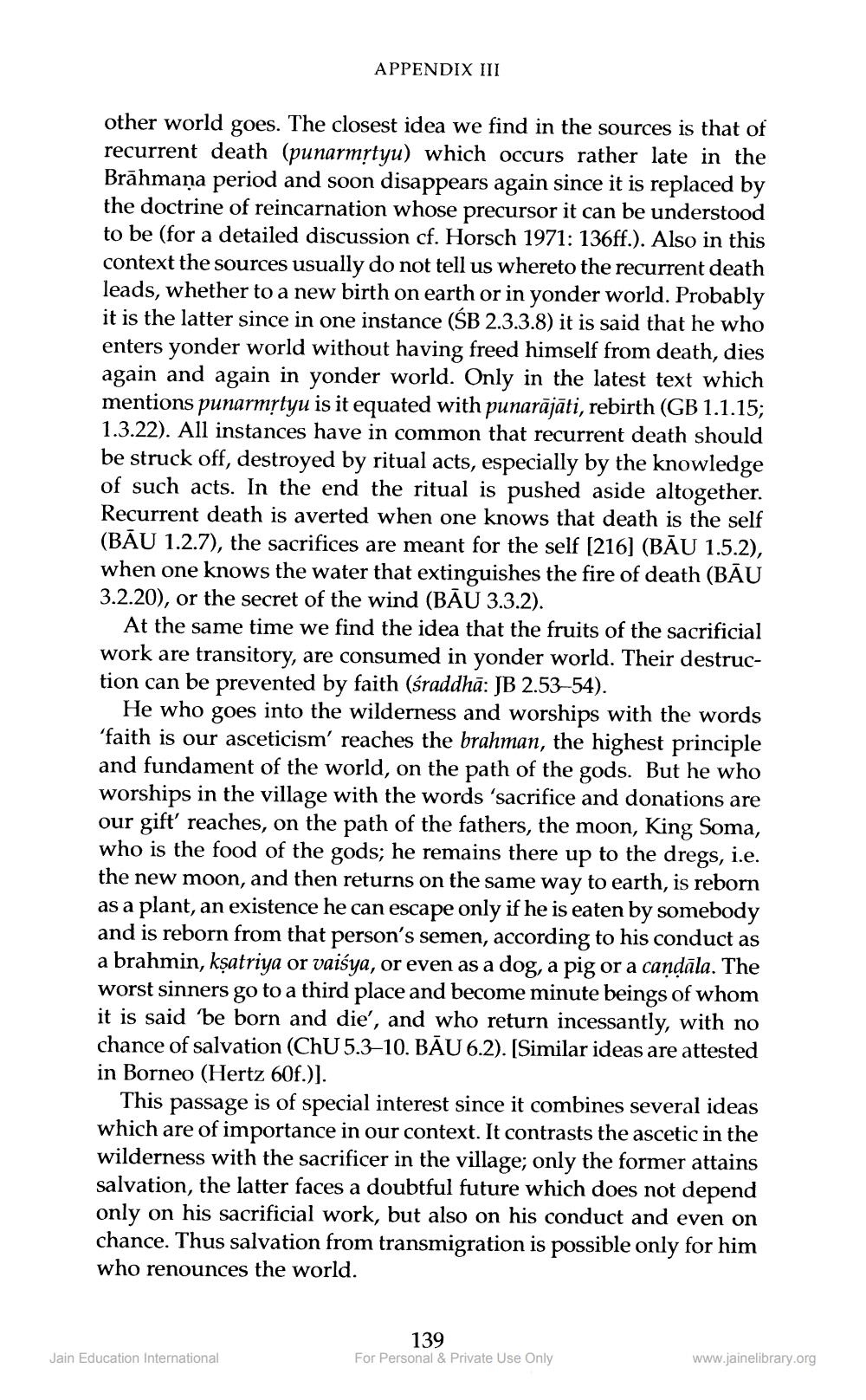________________
APPENDIX III
CD
other world goes. The closest idea we find in the sources is that of recurrent death (punarmstyu) which occurs rather late in the Brāhmaṇa period and soon disappears again since it is replaced by the doctrine of reincarnation whose precursor it can be understood to be (for a detailed discussion cf. Horsch 1971: 136ff.). Also in this context the sources usually do not tell us whereto the recurrent death leads, whether to a new birth on earth or in yonder world. Probably it is the latter since in one instance (SE .3.8) it is said that he who enters yonder world without having freed himself from death, dies again and again in yonder world. Only in the latest text which mentions punarmệtyu is it equated with punarājāti, rebirth (GB 1.1.15; 1.3.22). All instances have in common that recurrent death should be struck off, destroyed by ritual acts, especially by the knowledge of such acts. In the end the ritual is pushed aside altogether. Recurrent death is averted when one knows that death is the self (BĀU 1.2.7), the sacrifices are meant for the self [216] (BĀU 1.5.2), when one knows the water that extinguishes the fire of death (BĀU 3.2.20), or the secret of the wind (BĀU 3.3.2).
At the same time we find the idea that the fruits of the sacrificial work are transitory, are consumed in yonder world. Their destruction can be prevented by faith (śraddhā: JB 2.53-54).
He who goes into the wilderness and worships with the words 'faith is our asceticism' reaches the brahman, the highest principle and fundament of the world, on the path of the gods. But he who worships in the village with the words 'sacrifice and donations are our gift' reaches, on the path of the fathers, the moon, King Soma, who is the food of the gods; he remains there up to the dregs, i.e. the new moon, and then returns on the same way to earth, is reborn as a plant, an existence he can escape only if he is eaten by somebody and is reborn from that person's semen, according to his conduct as a brahmin, kșatriya or vaisya, or even as a dog, a pig or a caņdāla. The worst sinners go to a third place and become minute beings of whom it is said 'be born and die', and who return incessantly, with no chance of salvation (ChU5.3–10. BĀU 6.2). [Similar ideas are attested in Borneo (Hertz 60f.)].
This passage is of special interest since it combines several ideas which are of importance in our context. It contrasts the ascetic in the wilderness with the sacrificer in the village; only the former attains salvation, the latter faces a doubtful future which does not depend only on his sacrificial work, but also on his conduct and even on chance. Thus salvation from transmigration is possible only for him who renounces the world.
139 For Personal & Private Use Only
Jain Education International
www.jainelibrary.org




